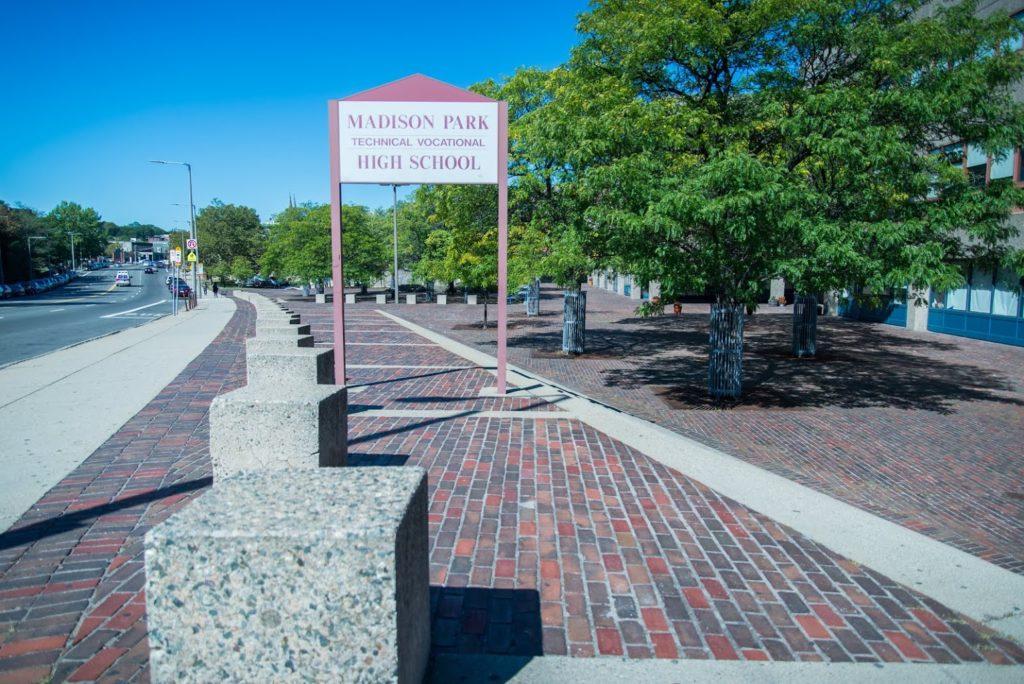By Meaghan Dowd, news correspondent
Only 23 percent of eighth graders in the United States are “proficient” in civic education, according to the National Center for Education Statistics. A new bill proposed on Beacon Hill by State Sen. Harriette Chandler aims to change that.
Chandler, alongside Rep. Mary Keefe and Rep. Louis Kafka, sponsored bill S.249, “An Act to involve youth in civic engagement.” The act would require the Department of Elementary and Secondary Education to create “one or more model curriculum units” for civics education, which public schools would then implement.
“What we’re hoping is that every community will have a unit of civics and they can determine what it’s going to be like,” Chandler said. “We are hoping it will energize people to get involved.”
A “unit” could comprise any combination of a semester-long course, a Model U.N. program, weekend activities, or any “other such program promoting civic engagement,” according to the bill’s text.
Massachusetts school districts would also be required to host voter registration drives. Programs would not be mandatory for students.
The bill is necessary because most high school graduates in the state have little to no knowledge of how the US is governed on a national or local level, which can lead to low approval ratings and voter turnout, Chandler said.
The absence of active civic engagement hampers students who want to address issues in their communities but have little idea how, according to Kristen Lobo, third-year business and economics major at Northeastern. Lobo is also the executive director of Northeastern’s chapter of Generation Citizen, a volunteer organization that teaches project- and action-based civics classes in partnering schools.
“The government was put in place to represent the voices of the people, but there’s a lot of communities that aren’t being represented because they don’t necessarily know how to, or have the opportunities or means to empower themselves and use the government to their advantage,” Lobo said.
In order to be effective, the bill should focus on local government, local civics and what engagement looks like at the community level, according to junior international affairs major Yasmen Bellemsieh, who said she had a traditional civics class in high school.
“It’s really unrealistic for us to focus so much on national elections,” Bellesmieh said. “It’s really important to vote in city elections and to really force kids to realize that if they don’t vote, then their voice is not going to be represented. That’s especially important in a community that has significant minorities that are represented by white males that don’t listen to or care about their opinions.”
All 50 states have a requirement to teach material or offer at least one course in civics or government in high school, according to the Center for Information & Research on Civic Learning and Engagement, but Chandler says it needs to expand beyond the classroom.
“The opposition has always been that we have a day, a school day, that’s already loaded with certain subjects that have to be given,” Chandler said. “That’s why we didn’t talk about it as a course or as a class. I talk about it as a unit.”
Civic education should address the alienation people feel from their governments, according to sophomore interactive design major Jailene Cabrera.
“Officials and politicians tell everybody, ‘Oh, we need to make this community safer,’ and stuff, and attention gets brought to issues, [but] it’s still not enough,” Cabrera said. She added that she wasn’t convinced bill S.249 would make a substantial difference.
The Joint Committee on Education hosted a hearing on Sept. 24, where Chandler, the proposal’s other sponsors and a handful of community members attempted to convince the committee of the bill’s merit. Next in the process is a vote in committee, the timetable for which has not been set.
“The chair of the committee will make the decision,” Chandler said. “They have to go into an executive session to do that and I don’t know when that will be – but I hope it’s a ‘yes’ vote.”
Photo by Scotty Schenck









